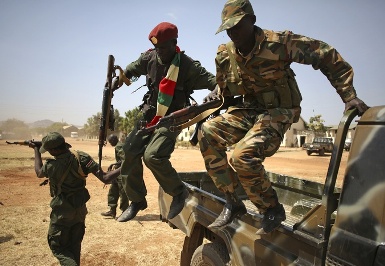Juba massacre survivor calls for justice and forgiveness
January 7, 2016 (KAMPALA) – Lieth Dador, is a survivor of the massacres that occurred in the South Sudanese capital, Juba when violence broke out in mid-December 2013.

Dador, however, says peace should prevail even if memories of death were still in mind.
“I’m a Juba massacre survivor, but I still need peace to come to South Sudan. It happened two years ago, and still memory reminds how cruel security personal, especially in military uniform came and took me and my relatives away from my house and headed to be killed,” he narrates.
Dador’s home was before the outbreak of conflict located west of Gudele, a Juba suburb.
He claimed many of his friends and relatives were allegedly rounded up and killed in December 2013, in what he described as targeted killings carried out by members of the security forces.
“I and some of my friends found ourselves few minutes later inside the police station near by my house where Nuer men, women and children were targeted,” Dador told Sudan Tribune.
He urged world leaders, the African Union, Intergovernmental Authority on Development (IGAD) and peace partners to expedite and put pressure on those against peace implementation.
“I think the International community should give more pressures to whoever violates the Addis Ababa peace agreement from both war parties,” stressed Dador.
“As South Sudanese citizens, we have a role to play in this peace implementation. We should not be blindfold by those benefiting in these conflicts. It is our right to say enough is enough to bring peace, because at the end of the day, we are the ones much affected rather than those politicians,” he added.
South Sudan’s warring factions, he advised, must closely reflect on the terms and principles of the peace process mediated by the East African regional bloc (IGAD).
“The two sides must refrain from brutality and adopt peace as a vehicle to allow for dialogue and resolve issues to change their perceptions for reaching a viable peace agreement,” he said.
(ST)
